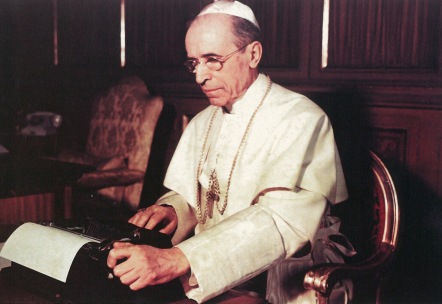
A few quick thoughts on Cardinal Sarah and mutual enrichment. I think the Cardinal is perhaps one of the most impressive spiritual writers of today, he is brave when others are craven – but he seems not to understand the nature of ‘Tradition’.
‘Tradition’ will always be regarded as dangerous, especially in an increasingly monarchical Church. It is not a movement, it is something below a movement, it is grass roots thing. Those who have respect for ‘Tradition’ should also have respect for the hierarchical structure of the Church but ‘Tradition’ is something beyond that. It might well be signified by a love for the Old Mass but it is more than that, after all what is the ‘Old Mass’? It is something which in the end ended a process of an organic development which ended with Missal of Blessed John XXIII in 1962, hence the attachment to that Missal but it is more than that.
‘Traditionalists’ are unhappy about the Cardinals suggestions for mutual enrichment, fine to introduce elements of the Old Rite into the New Rite but to do things the other way round is unacceptable. ‘Traditionalist’, many of whom have difficulty with certain aspects of Vatican II that are out of keeping with let’s say Newman’s theory of the development doctrine look to another age and another type of ecclesiology, something which arises from below, from forgive me for returning yet to him, St Vincent of Lerrins’, "Quod ubique, quod semper, quod ab omnibus, creditum est." Or in English, "That which has been believed everywhere, always, by all people."
There is a tension coming to the fore in this Pontificate, amplified in part by Amoris Laetitia but its strong centralism too, and imposition of doctrine from above, with something far more pneumatological, the slow gentle movement of the faith amongst the grassroots of the faithful which is the real ‘theology from below’. It is something which Catholics have always understood from scripture about the working of the Holy Spirit, that he leads the Church into deeper understanding of the faith as he does through popular movements as much as he does through Papal or Episcopal interventions, indeed he does this in the reception by the faithful of Papal or Episcopal doctrine.
It might be necessary at times for Pope’s to interfere in the day to day running of individual diocese, or in the life of the whole Church but this is as Vatican I’s Dogmatic Constitution Pastor Aeternus indicates, something to be exercised when the unity of the Church is threatened, not the normal function of the Sovereign Pontiff. It obviously demands that the Pope is indeed a servant and bishops see themselves as sharing in his apostolic office, essentially being faithful bearers of the Tradition, they too are given authority to bind and loose, the difference is Peter’s role in maintaining unity amongst his Apostolic brothers, at no time except in the hundred years or so has he been an innovator.












